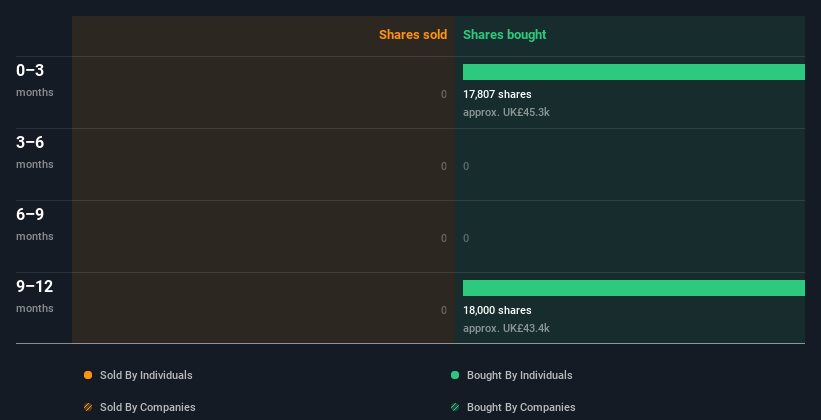Favourable Signals For Mpac Group: Numerous Insiders Acquired Stock \
It is usually uneventful when a single insider buys stock. However, When quite a few insiders buy shares, as it happened in Mpac Group plc's (LON:MPAC) case, it's fantastic news for shareholders.
While we would never suggest that investors should base their decisions solely on what the directors of a company have been doing, logic dictates you should pay some attention to whether insiders are buying or selling shares.
View our latest analysis for Mpac Group
Mpac Group Insider Transactions Over The Last Year
In the last twelve months, the biggest single purchase by an insider was when Independent Non-Executive Director Matthew Gordon Taylor bought UK£45k worth of shares at a price of UK£2.54 per share. That means that even when the share price was higher than UK£2.20 (the recent price), an insider wanted to purchase shares. While their view may have changed since the purchase was made, this does at least suggest they have had confidence in the company's future. To us, it's very important to consider the price insiders pay for shares. Generally speaking, it catches our eye when insiders have purchased shares at above current prices, as it suggests they believed the shares were worth buying, even at a higher price.
While Mpac Group insiders bought shares during the last year, they didn't sell. The chart below shows insider transactions (by companies and individuals) over the last year. By clicking on the graph below, you can see the precise details of each insider transaction!
There are plenty of other companies that have insiders buying up shares. You probably do not want to miss this free list of growing companies that insiders are buying.
Insiders At Mpac Group Have Bought Stock Recently
It's good to see that Mpac Group insiders have made notable investments in the company's shares. Overall, two insiders shelled out UK£45k for shares in the company -- and none sold. This makes one think the business has some good points.
Insider Ownership
Looking at the total insider shareholdings in a company can help to inform your view of whether they are well aligned with common shareholders. We usually like to see fairly high levels of insider ownership. Insiders own 8.2% of Mpac Group shares, worth about UK£3.7m, according to our data. We do generally prefer see higher levels of insider ownership.
So What Does This Data Suggest About Mpac Group Insiders?
Our data shows a little insider buying, but no selling, in the last three months. Overall the buying isn't worth writing home about. However, our analysis of transactions over the last year is heartening. While we have no worries about the insider transactions, we'd be more comfortable if they owned more Mpac Group stock. In addition to knowing about insider transactions going on, it's beneficial to identify the risks facing Mpac Group. While conducting our analysis, we found that Mpac Group has 2 warning signs and it would be unwise to ignore these.
But note: Mpac Group may not be the best stock to buy. So take a peek at this free list of interesting companies with high ROE and low debt.
For the purposes of this article, insiders are those individuals who report their transactions to the relevant regulatory body. We currently account for open market transactions and private dispositions, but not derivative transactions.
Have feedback on this article? Concerned about the content? Get in touch with us directly. Alternatively, email editorial-team (at) simplywallst.com.
This article by Simply Wall St is general in nature. We provide commentary based on historical data and analyst forecasts only using an unbiased methodology and our articles are not intended to be financial advice. It does not constitute a recommendation to buy or sell any stock, and does not take account of your objectives, or your financial situation. We aim to bring you long-term focused analysis driven by fundamental data. Note that our analysis may not factor in the latest price-sensitive company announcements or qualitative material. Simply Wall St has no position in any stocks mentioned.
Join A Paid User Research Session
You’ll receive a US$30 Amazon Gift card for 1 hour of your time while helping us build better investing tools for the individual investors like yourself. Sign up here

 Yahoo Finance
Yahoo Finance 
